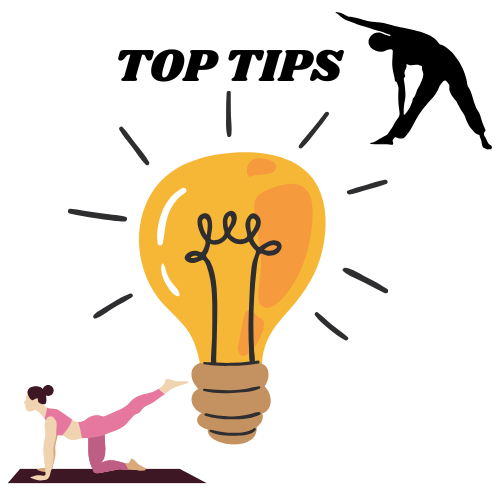The Importance of Exercise: A Key to a Healthy Life

Exercise is one of the most essential activities for maintaining a healthy and balanced lifestyle. In today’s fast-paced world, where sedentary habits are increasing, incorporating exercise into our daily routine has become more important than ever. It not only enhances physical health but also improves mental well-being, ensuring a better quality of life.
Physical Benefits of Exercise
- Improves Cardiovascular Health Regular exercise strengthens the heart, improves blood circulation, and reduces the risk of heart diseases such as hypertension and stroke. Engaging in activities like jogging, cycling, and swimming can significantly enhance heart function and overall stamina.
- Aids in Weight Management Exercise helps in burning calories, reducing excess fat, and maintaining a healthy body weight. A combination of cardiovascular exercises and strength training is effective for weight loss and body toning.
- Strengthens Muscles and Bones Strength training and weight-bearing exercises help in building strong muscles and increasing bone density, thereby preventing osteoporosis and age-related muscle loss. Resistance training, such as lifting weights or using resistance bands, contributes to overall muscle strength.
- Boosts Immunity A well-exercised body has a stronger immune system, making it easier to fight off infections and diseases. Regular physical activity helps in improving circulation, allowing immune cells to move efficiently throughout the body.
Enhances Energy Levels Engaging in regular exercise can boost overall energy levels and reduce feelings of fatigue. It improves the efficiency of the cardiovascular system, ensuring better oxygen and nutrient supply to body tissues.

Mental Health Benefits of Physical Activity
Reduces Stress and Anxiety
Physical activity triggers the release of endorphins, also known as ‘feel-good’ hormones, which help in reducing stress and anxiety levels. Activities like yoga, meditation, and deep breathing techniques further enhance relaxation.Enhances Mood and Mental Clarity
Regular movement improves mood, cognitive function, and overall mental well-being, reducing the risk of depression and mental fatigue. Staying active also enhances focus and memory, making it beneficial for students and professionals.Improves Sleep Quality
Engaging in moderate physical activity promotes better sleep patterns, helping in combating insomnia and other sleep-related disorders. Activities like light stretching and walking before bedtime can contribute to restful sleep.Increases Self-Confidence
Maintaining an active lifestyle helps in improving body image and self-esteem. Achieving fitness goals gives a sense of accomplishment, leading to increased confidence and motivation.Different Types of Physical Activities
Cardio Workouts – Running, cycling, swimming, and brisk walking improve cardiovascular endurance and overall stamina.
Strength Training – Weight lifting, push-ups, and resistance movements help in muscle growth and bone strength.
Flexibility Routines – Yoga and stretching enhance flexibility, posture, and mobility, reducing the risk of injuries.
Balance and Coordination Workouts – Activities like tai chi and Pilates improve stability, coordination, and prevent falls, especially in older adults.
High-Intensity Interval Training (HIIT) – Short bursts of intense movement followed by recovery periods help in burning fat and improving fitness levels efficiently.
Tips to Incorporate Exercise into Daily Routine

- Choose activities that you enjoy to maintain consistency and motivation.
- Set realistic goals and track progress to stay accountable.
- Stay hydrated and maintain a balanced diet to complement your fitness regime.
- Include a mix of different exercises to keep workouts interesting and effective.
- Use stairs instead of elevators, walk instead of driving short distances, and engage in household chores to stay active throughout the day.
- Consult a fitness expert before starting any rigorous exercise routine to avoid injuries and ensure safety.
How to Overcome Barriers
- Lack of Time – Prioritize exercise by scheduling short 10–15 minute sessions throughout the day.
- Lack of Motivation – Find a workout buddy, join a class, or listen to music while exercising to stay motivated.
- Physical Limitations – Opt for low-impact exercises like swimming or yoga to stay active without strain.
- Boredom – Try different activities such as dancing, hiking, or playing a sport to make workouts fun and engaging.
Conclusion
Exercise is the cornerstone of a healthy lifestyle, offering numerous benefits for both physical and mental well-being. By making it a part of our daily routine, we can enhance our quality of life, increase longevity, and promote overall well-being. Whether it’s a short walk, a yoga session, or a high-intensity workout, every bit of physical activity contributes to a healthier and happier life.
The key is to stay consistent and enjoy the process. If your are going to Start exercise comment below “START” and reform your life.

Pingback: Intermittent Fasting: Science- Benefits & Best Practices